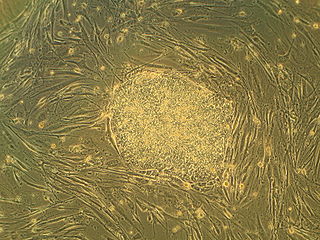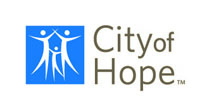
Proposition 13 is an amendment of the Constitution of California enacted during 1978, by means of the initiative process, to cap property taxes and limit property reassessments to when the property changes ownership, as well as require a 2/3 majority for tax increases in the state legislature. The initiative was approved by California voters in a primary election on June 6, 1978 by a nearly two to one margin. It was upheld by the Supreme Court in 1992 in Nordlinger v. Hahn, 505 U.S. 1 (1992). Proposition 13 is embodied in Article XIII A of the Constitution of the State of California.
The Stanford University School of Medicine is the medical school of Stanford University and is located in Stanford, California, United States. It traces its roots to the Medical Department of the University of the Pacific, founded in San Francisco in 1858. This medical institution, then called Cooper Medical College, was acquired by Stanford in 1908. The medical school moved to the Stanford campus near Palo Alto, California, in 1959.
The California Institute for Regenerative Medicine (CIRM) is a state agency that supports research and education in the fields of stem cell and gene therapies. It was created in 2004 after 59% of California voters approved California Proposition 71: the Research and Cures Initiative, which allocated $3 billion to fund stem cell research in California. In 2020 voters approved Proposition 14 that allocated additional funds to CIRM.

Regenerative medicine deals with the "process of replacing, engineering or regenerating human or animal cells, tissues or organs to restore or establish normal function". This field holds the promise of engineering damaged tissues and organs by stimulating the body's own repair mechanisms to functionally heal previously irreparable tissues or organs.

Proposition 71 of 2004 is a law enacted by California voters to support stem cell research in the state. It was proposed by means of the initiative process and approved in the 2004 state elections on November 2. The Act amended both the Constitution of California and the Health and Safety Code.

City of Hope is a private, non-profit clinical research center, hospital and graduate school located in Duarte, California, United States. The center's main campus resides on 110 acres (45 ha) of land adjacent to the boundaries of Duarte and Irwindale, with a network of clinical practice locations throughout Southern California, satellite offices in Monrovia and Irwindale, and regional fundraising offices throughout the United States.

California's state elections were held November 2, 2004. Necessary primary elections were held on March 2. Up for election were all the seats of the State Assembly, 20 seats of the State Senate, and sixteen ballot measures.

California Proposition 6, also known as the Safe Neighborhoods Act and The Runner Initiative, is a statutory initiative that appeared on the November 2008 ballot in California. This proposition was rejected by voters on November 4 of that year.
Consumer Watchdog is a non-profit, progressive organization which advocates for taxpayer and consumer interests, with a focus on insurance, health care, political reform, privacy and energy.
Walter Michael Bortz II was an American physician and author who taught medicine at Stanford University. He conducted research on aging and promoted the possibility of a 100-year lifespan.

Proposition 23 was a California ballot proposition that was on the November 2, 2010 California statewide ballot. It was defeated by California voters during the statewide election by a 23% margin. If passed, it would have suspended AB 32, a law enacted in 2006, legally referred to its long name, the Global Warming Solutions Act of 2006. Sponsors of the initiative referred to their measure as the California Jobs Initiative while opponents called it the Dirty Energy Prop.

The Massachusetts Comprehensive Permits and Regional Planning Initiative, also known as Question 2, appeared on the November 2, 2010 ballot in the state of Massachusetts as an initiative. Question 2 was rejected by the Massachusetts voters by 1,254,759 "No" votes to 900,405 "Yes" votes. The measure had been sponsored by Better Not Bigger, a local advocacy group in the state.

A California Congressional Redistricting Initiative, Proposition 20 was on the November 2, 2010 ballot in California. It was approved by 61.2% of voters. Election officials announced on May 5 that the proposition had collected sufficient signatures to qualify for the ballot. The measure is known by its supporters as the VOTERS FIRST Act for Congress.
Proposition 19, also known as the California Marijuana Initiative (CMI), was a ballot initiative on the November 7, 1972 California statewide ballot. This was the first attempt to legalize marijuana by ballot measure in the history of the United States. If it had passed, the measure would have removed penalties in the State of California for persons 18 years of age or older for using, possessing, growing, processing, or transporting marijuana for personal use. The California Marijuana Initiative's organizers coordinated a huge grassroots organizing drive to place the measure on the ballot. The initiative qualified for the November statewide ballot in June 1972. The initiative was defeated by the voters with 66.5% No votes to 33.5% Yes votes.

The California state elections in 2020 were held on Tuesday, November 3, 2020. Unlike previous election cycles, the primary elections were held on Super Tuesday, March 3, 2020.
Thomas A. Rando is an American stem cell biologist and neurologist, best known for his research on basic mechanisms of stem cell biology and the biology of aging. He is the Director of the Eli and Edythe Broad Center of Regenerative Medicine and Stem Cell Research and a professor of Neurology and Molecular, Cell and Developmental Biology at the University of California, Los Angeles. Prior to joining the UCLA faculty, he served as Professor of Neurology and Neurological Sciences at Stanford University School of Medicine, where he was also founding director of the Glenn Center for the Biology of Aging. His additional roles while at Stanford included co-founder and deputy director of the Stanford Center on Longevity, founding director of Stanford's Muscular Dystrophy Association Clinic, and Chief of Neurology at the VA Palo Alto Health Care System.

California Proposition 14 is a citizen-initiated ballot measure that appeared on the ballot in the 2020 California elections, for November 3, 2020. It authorizes state bonds to be issued worth $5.5 billion, which will fund the California Institute for Regenerative Medicine (CIRM), which serves as the state's center for stem cell research, and enable it to continue its operations. This measure passed with 51% of the vote.

California Proposition 19 (2020), also referred to as Assembly Constitutional Amendment No. 11, is an amendment of the Constitution of California that was narrowly approved by voters in the general election on November 3, 2020, with just over 51% of the vote. The legislation increases the property tax burden on owners of inherited property to provide expanded property tax benefits to homeowners ages 55 years and older, disabled homeowners, and victims of natural disasters, and fund wildfire response. According to the California Legislative Analyst, Proposition 19 is a large net tax increase "of hundreds of millions of dollars per year."
Ophir David Klein is an American developmental biologist who specializes in pediatric medical genetics. Klein is Executive Director of Cedars-Sinai Guerin Children’s, Vice Dean for Children’s Services, Professor of Pediatrics, and the David and Meredith Kaplan Distinguished Chair in Children’s Health. He is also a professor of Orofacial Sciences and Pediatrics at UCSF.





